
Enchanting Escapades in the Bavarian Alps
Nestled in southern Germany, the Bavarian Alps offer a picturesque retreat for nature lovers and adventure seekers alike. This stunning mountain range is renowned for its breathtaking landscapes, charming villages, and rich cultural heritage. From snow-capped peaks to lush green valleys, the scenery here is nothing short of spectacular. Outdoor enthusiasts will find plenty to do, with activities ranging from skiing and snowboarding in the winter to hiking and mountain biking in the warmer months. The region is also home to several pristine lakes, perfect for swimming, boating, or simply relaxing by the shore. And if you're a fan of history and architecture, be sure to visit the many castles and monasteries that dot the landscape, including the famous Neuschwanstein Castle. The Bavarian Alps are also known for their warm hospitality and delicious cuisine. Sample traditional Bavarian dishes at local inns and restaurants, or enjoy a cold beer at one of the many beer gardens. With so much to see and do, a trip to the Bavarian Alps is sure to be an unforgettable experience.
Local tips in Bavarian Alps
- Visit Neuschwanstein Castle early in the morning to avoid crowds.
- Bring layered clothing as the weather can change rapidly in the mountains.
- Consider purchasing a regional travel pass for discounted transport and entry fees.
- Take a day trip to Lake Königssee for a tranquil boat ride and stunning views.
- Try local Bavarian dishes like Weisswurst and pretzels at traditional inns.
Enchanting Escapades in the Bavarian Alps
Nestled in southern Germany, the Bavarian Alps offer a picturesque retreat for nature lovers and adventure seekers alike. This stunning mountain range is renowned for its breathtaking landscapes, charming villages, and rich cultural heritage. From snow-capped peaks to lush green valleys, the scenery here is nothing short of spectacular. Outdoor enthusiasts will find plenty to do, with activities ranging from skiing and snowboarding in the winter to hiking and mountain biking in the warmer months. The region is also home to several pristine lakes, perfect for swimming, boating, or simply relaxing by the shore. And if you're a fan of history and architecture, be sure to visit the many castles and monasteries that dot the landscape, including the famous Neuschwanstein Castle. The Bavarian Alps are also known for their warm hospitality and delicious cuisine. Sample traditional Bavarian dishes at local inns and restaurants, or enjoy a cold beer at one of the many beer gardens. With so much to see and do, a trip to the Bavarian Alps is sure to be an unforgettable experience.
When is the best time to go to Bavarian Alps?
Iconic landmarks you can’t miss
Hohenschwangau Castle
Discover the enchanting world of Bavarian royalty at Hohenschwangau Castle, the childhood home of King Ludwig II, nestled amidst stunning Alpine scenery near Neuschwanstein.
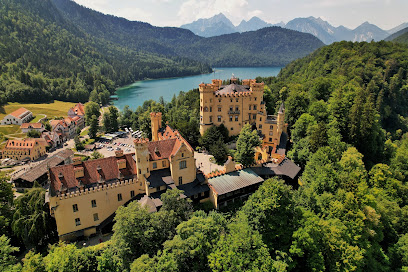
Linderhof Palace
Experience the opulent world of King Ludwig II at Linderhof Palace, a stunning Rococo masterpiece nestled in the Bavarian Alps, showcasing royal extravagance and artistic vision.
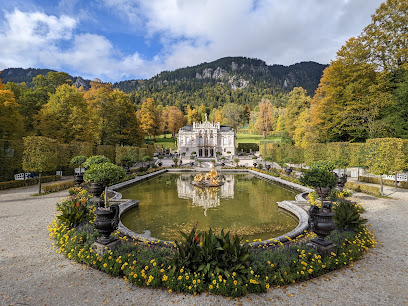
Partnachklamm
Discover the raw beauty of the Partnach Gorge near Garmisch-Partenkirchen: a natural wonder carved by the Partnach River, offering an unforgettable experience through tunnels and walkways.
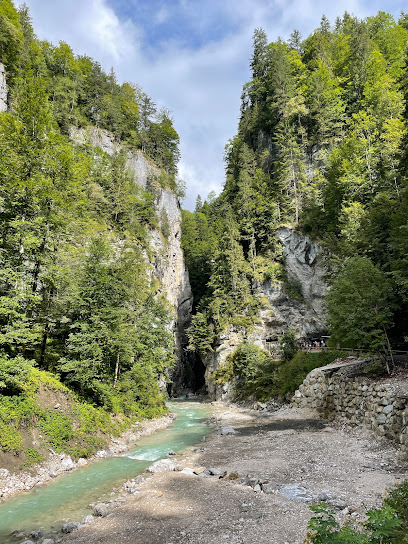
Brotzeitstein-des-steinbeißers
Discover the literary magic of Brotzeitstein-des-steinbeißers in Garmisch-Partenkirchen's Michael-Ende Kurpark, a serene oasis celebrating the legacy of the beloved German author.
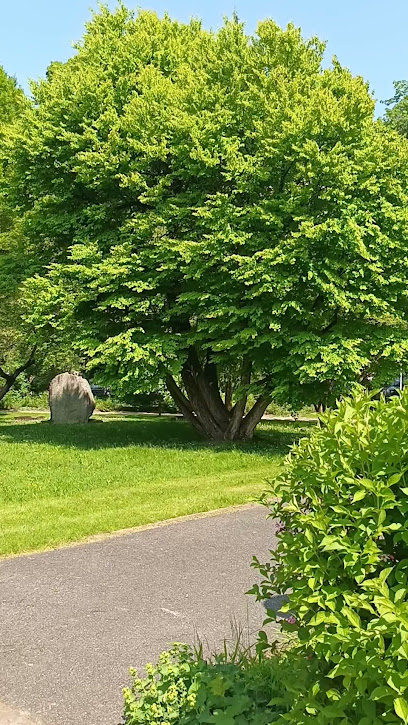
Unmissable attractions to see
Neuschwanstein Castle
Experience the fairytale: Explore King Ludwig II's Neuschwanstein Castle, a stunning architectural masterpiece nestled in the Bavarian Alps.
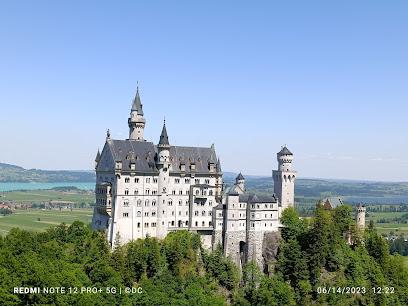
Hohes Castle
Explore Füssen's iconic High Castle: A medieval masterpiece with stunning art, architecture, and panoramic views of Bavaria.
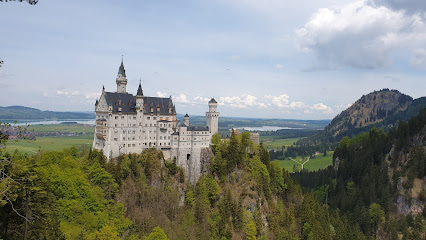
Kuhfluchtwasserfälle
Discover the breathtaking Kuhflucht Waterfalls near Farchant, Germany: a stunning natural wonder with scenic hiking trails and refreshing alpine air.
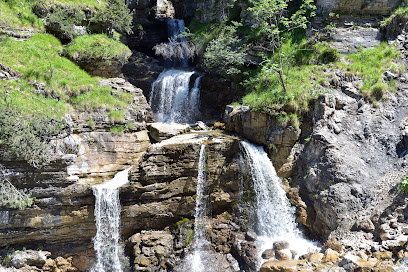
Festspielhaus Neuschwanstein
Discover the enchanting Festspielhaus Neuschwanstein in Füssen, a premier performing arts theater offering unforgettable cultural experiences amid stunning Bavarian landscapes.
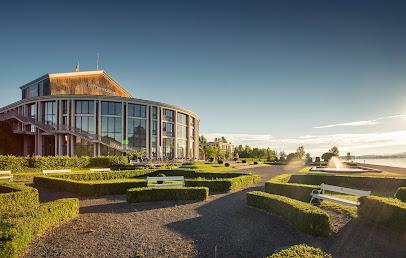
Museum of the Bavarian Kings
Discover the captivating history of Bavaria's royal family at the Museum of the Bavarian Kings, near the iconic Neuschwanstein Castle.
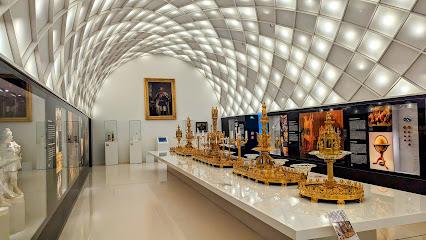
Münter - House
Explore the former home of Gabriele Münter and Wassily Kandinsky, a vibrant center for the 'Blue Rider' movement in Murnau am Staffelsee.
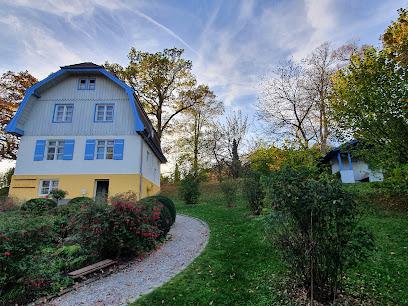
Alpseebad Hohenschwangau
A refreshing alpine escape with stunning views of Neuschwanstein and Hohenschwangau castles on the crystal-clear Alpsee lake.
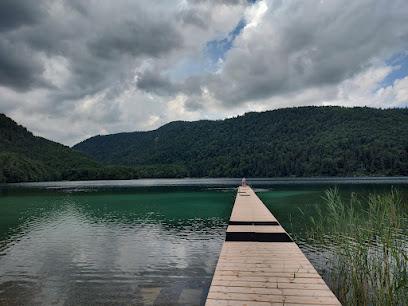
Pöllat Gorge Schwangau
Discover the stunning Pöllat Gorge in Schwangau: breathtaking views, lush trails, and a touch of Bavarian history near Neuschwanstein Castle.
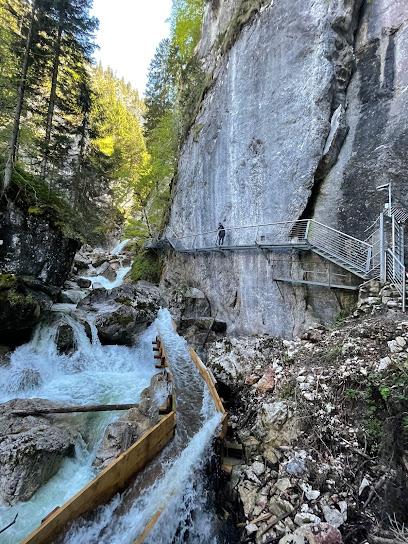
Stadtbrunnen
A historical landmark in the heart of Füssen's Old Town, the Stadtbrunnen celebrates the town's heritage and its patron saint, Magnus.
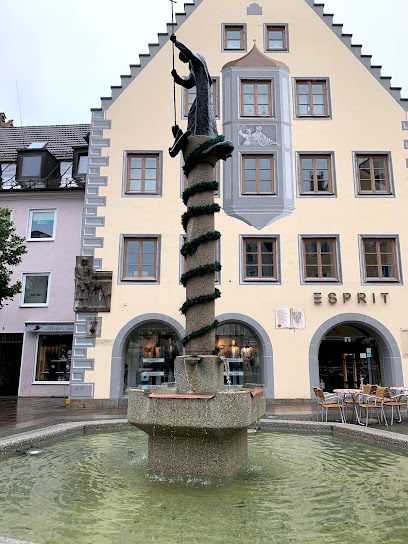
Hundinghütte
Step into Wagnerian opera at the Hundinghütte in Linderhof Park, a whimsical creation of King Ludwig II inspired by 'Die Walküre'.
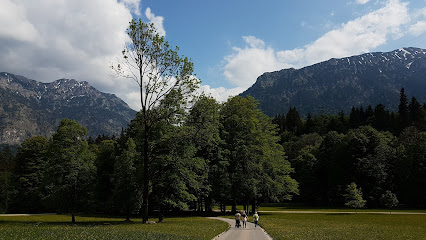
Kurpark Partenkirchen
Discover Kurpark Partenkirchen: A historic park in Garmisch-Partenkirchen offering tranquil gardens, cultural events, and a peaceful retreat.
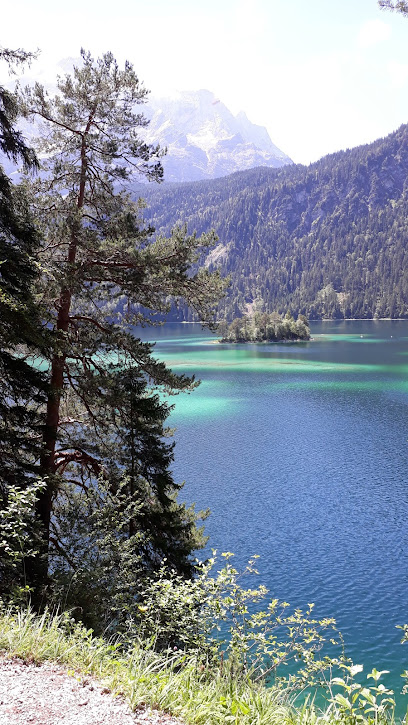
Wankerfleck
Discover Wankerfleck: A peaceful Bavarian escape with ancient trees, stunning mountain views, and royal history.
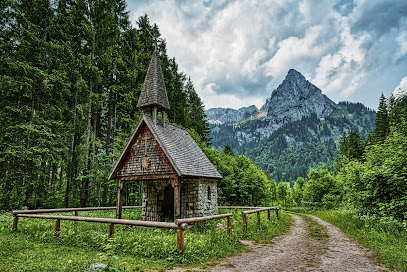
Cafe-Bistro at Neuschwanstein Castle
Recharge with Bavarian flavors and breathtaking views at the Cafe-Bistro, nestled within the enchanting Neuschwanstein Castle.

Schneefernerhaus
Explore Germany's highest research station atop the Zugspitze, where science meets stunning alpine views.
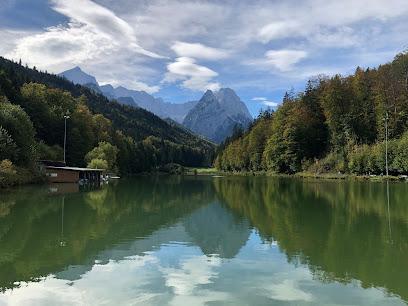
Music Pavilion
A scenic highlight in Linderhof Palace's gardens, the Music Pavilion offers stunning views and a tranquil retreat in the Bavarian Alps.
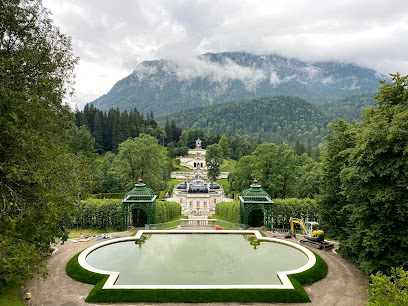
Essential places to dine
Zum Wildschütz
Savor authentic Bavarian cuisine at Zum Wildschütz in Garmisch-Partenkirchen – where tradition meets taste.
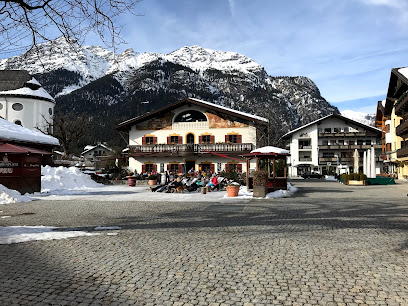
seeRestaurant EIBSEE Pavillon
Discover culinary delights at EIBSEE Pavillon with breathtaking views of Eibsee Lake and surrounding Alps - a true Bavarian experience.
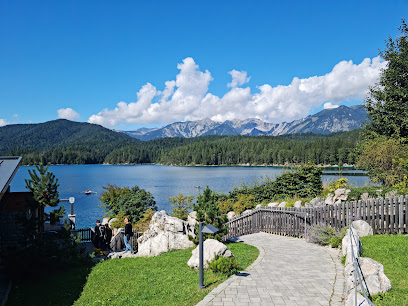
Fischer's Mohrenplatz
Savor authentic Bavarian cuisine amidst stunning alpine views at Fischer's Mohrenplatz in Garmisch-Partenkirchen.
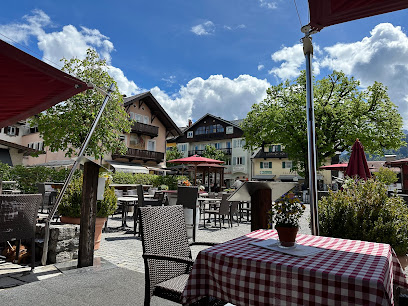
Gasthaus zur Schranne
Discover authentic Bavarian flavors at Gasthaus zur Schranne in Garmisch-Partenkirchen's charming beer garden.
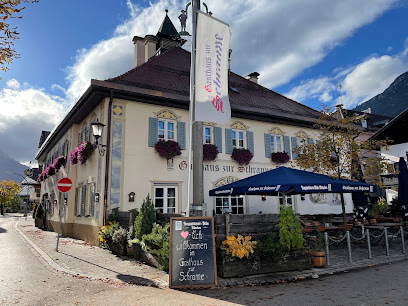
Bräustüberl Garmisch
Experience authentic Bavarian cuisine and craft beers at Bräustüberl Garmisch – where tradition meets taste in stunning Garmisch-Partenkirchen.
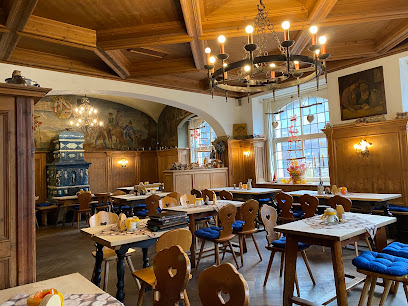
Alpengasthof Gröbl-Alm - Leuthner oHG
Discover authentic Bavarian flavors at Alpengasthof Gröbl-Alm, where stunning alpine views meet warm hospitality.
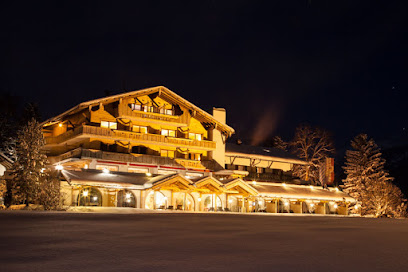
Kaiserschmarrn-Alm
Experience authentic Austrian cuisine at Kaiserschmarrn-Alm in Garmisch-Partenkirchen—famous for its delightful pancakes and stunning mountain views.
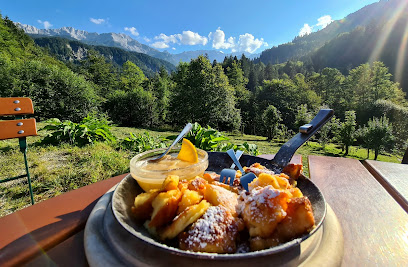
Colosseo
Experience the best of Italian cuisine in Garmisch-Partenkirchen at Colosseo, where authentic flavors meet stunning mountain views.
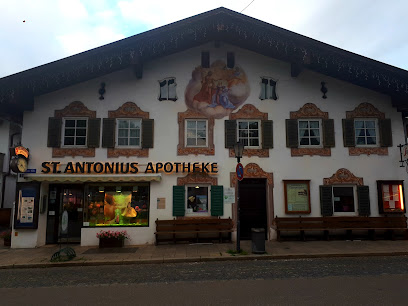
Bungalow 7
Experience the best of American cuisine and vibrant cocktails at Bungalow 7 in Garmisch-Partenkirchen—your culinary retreat amidst stunning alpine scenery.
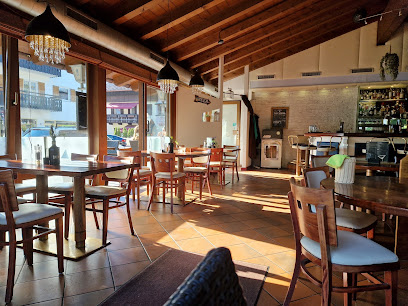
Gaststätte Flößerstube
Discover delicious Bavarian dishes in a cozy atmosphere at Gaststätte Flößerstube in Garmisch-Partenkirchen.
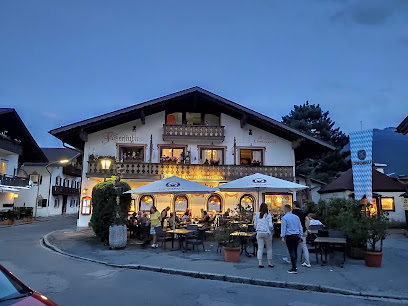
Spatzenhäus'l - Renate Hofer
Experience authentic Bavarian flavors at Spatzenhäus'l in Grainau - where tradition meets culinary delight amidst stunning mountain views.
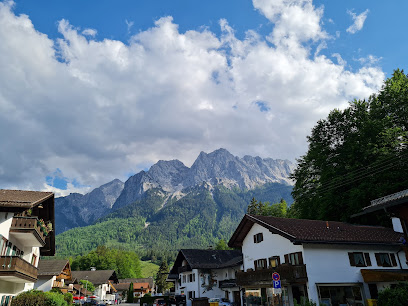
Wolpertinger
Savor authentic Bavarian flavors at Wolpertinger in Garmisch-Partenkirchen - where tradition meets taste in a cozy alpine setting.
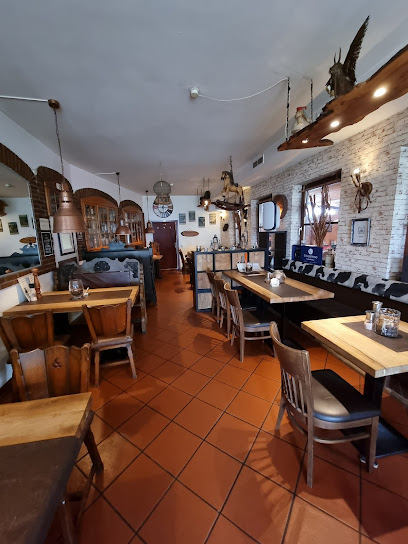
Panorama Lounge 2962
Experience unparalleled alpine views and exquisite dining at Panorama Lounge 2962, perched atop Germany's highest peak.
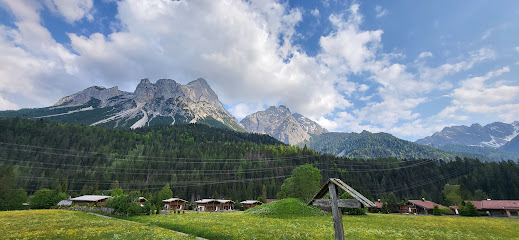
Ettaler Mühle
Experience authentic Bavarian cuisine at Ettaler Mühle's charming beer garden surrounded by nature's beauty.
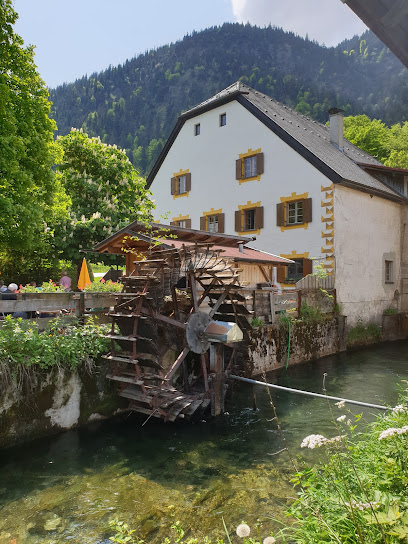
Berggasthof Kreuzalm
Discover the charm of Bavarian cuisine at Berggasthof Kreuzalm with stunning mountain views and warm hospitality.
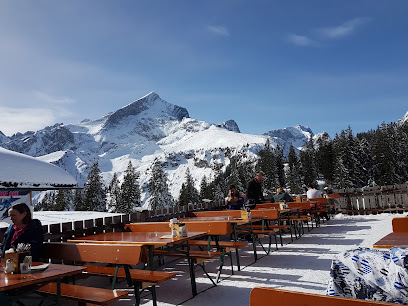
Markets, malls and hidden boutiques
H&M
Discover the latest fashion trends for the whole family at H&M in Garmisch-Partenkirchen, where style meets affordability in a vibrant shopping experience.
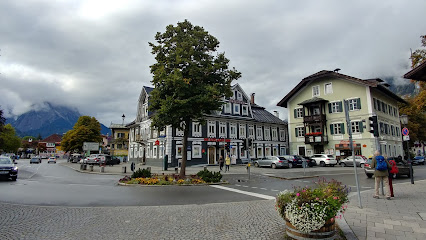
Garmisch PX
Discover a unique shopping experience at Garmisch PX, where quality clothing meets the charm of Garmisch-Partenkirchen in the Bavarian Alps.
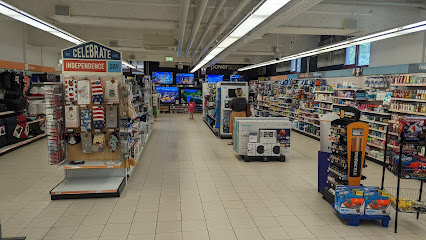
Apollo DUTY FREE
Shop at Apollo DUTY FREE in Schwangau for unique gifts, handbags, and souvenirs, capturing the essence of your travel experience.
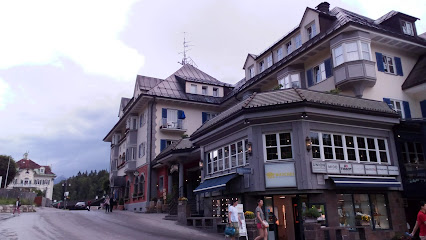
c a, C&A Stores nearby Garmisch-Partenkirchen
Explore C&A Stores in Garmisch-Partenkirchen for stylish, affordable clothing for the whole family amidst stunning alpine scenery.
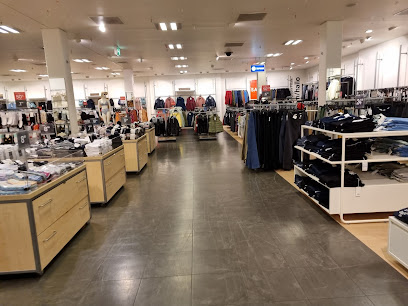
Mountain Warehouse
Discover top-quality outdoor clothing and equipment at Mountain Warehouse in Garmisch-Partenkirchen, your gateway to unforgettable alpine adventures.
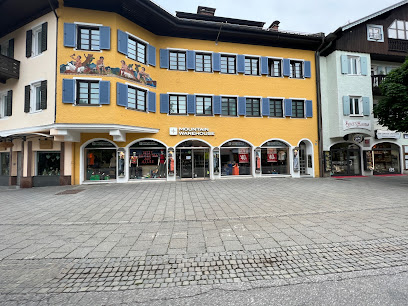
Kult- Garmisch
Discover the best denim styles at Kult-Garmisch, the ultimate jeans shop in the heart of Garmisch-Partenkirchen, surrounded by stunning alpine scenery.
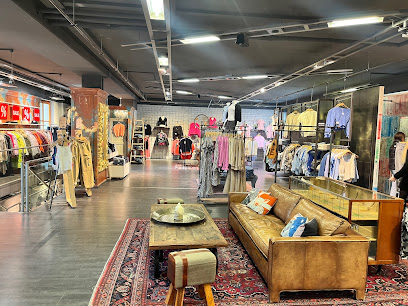
Froschkönig -Geschenkartikel Querbeet -Giftshop
Explore Froschkönig, a charming gift shop in Garmisch-Partenkirchen, offering unique souvenirs and local delicacies that capture the spirit of Bavaria.
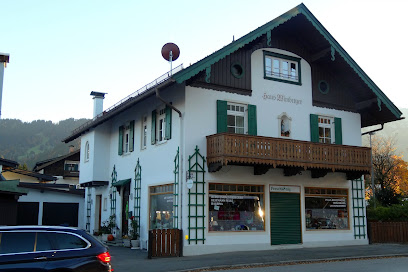
Museum shop Neuschwanstein Castle
Explore the enchanting Museum Shop at Neuschwanstein Castle, where unique souvenirs and gifts celebrate the magic of this fairy-tale destination.
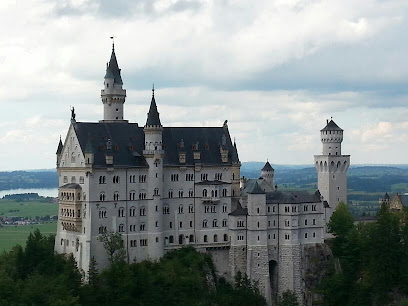
Schlossladen im Schloss Hohenschwangau
Explore unique Bavarian gifts and local souvenirs at Schlossladen im Schloss Hohenschwangau, the perfect stop for every traveler in Schwangau.
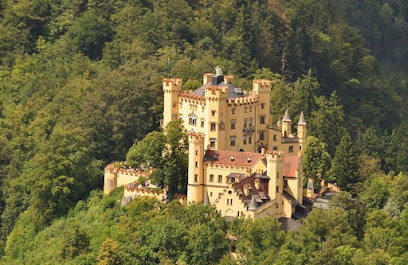
Anne S. Boutique
Explore unique fashion at Anne S. Boutique, a charming clothing store in Garmisch-Partenkirchen, reflecting Bavarian elegance and style.

SWAROVSKI Garmisch Partenkirchen
Explore the elegance of Swarovski in Garmisch-Partenkirchen, where craftsmanship meets luxury in a stunning alpine setting.
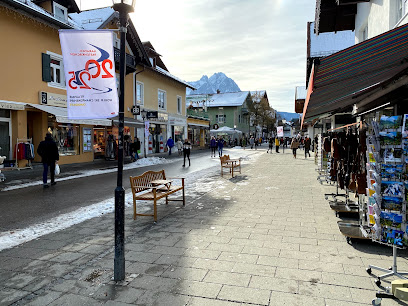
Servus Platzhirsch – Geschenke, Mode, Wohndesign, Café
Discover unique Bavarian gifts and delicious treats at Servus Platzhirsch in Garmisch-Partenkirchen – a perfect blend of shopping and café culture.
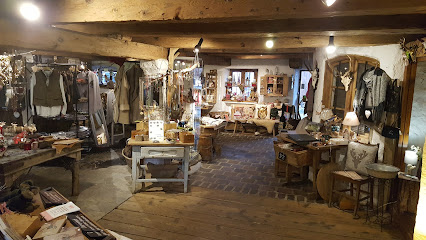
NEW YORKER
Discover stylish clothing and accessories for all ages at NEW YORKER in Garmisch-Partenkirchen, your fashion destination in the heart of the Alps.
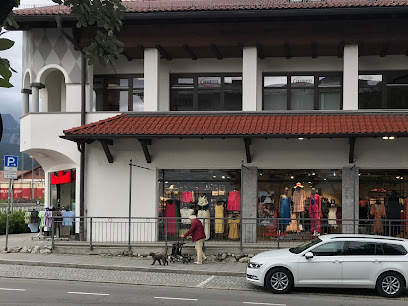
Sorge
Explore Sorge, the enchanting souvenir store in Garmisch-Partenkirchen, offering unique gifts and local crafts that embody Bavarian charm.
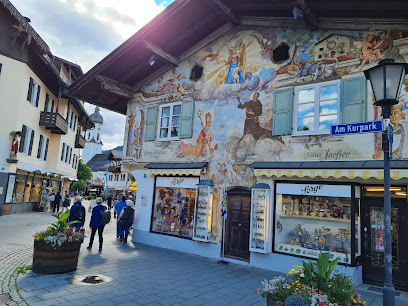
Sophieplus
Discover Sophieplus in Garmisch-Partenkirchen for unique souvenirs and a delightful selection of teas that capture the essence of Bavaria.
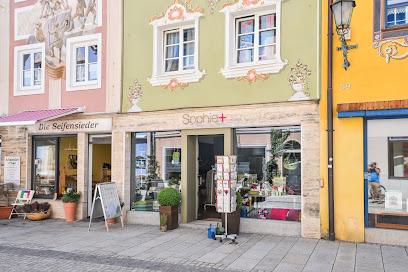
Essential bars & hidden hideouts
The Irish Pub
Discover the warmth of Irish hospitality at The Irish Pub in Garmisch-Partenkirchen, a perfect spot for food, drinks, and entertainment.
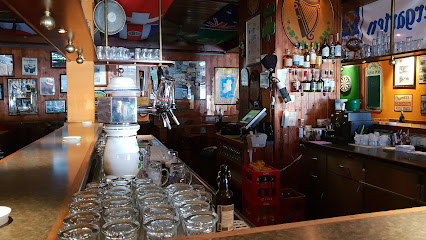
Bayrish Pub
Discover the essence of Irish hospitality at Bayrish Pub in Füssen, where delightful cuisine meets a cozy atmosphere in the heart of Bavaria.
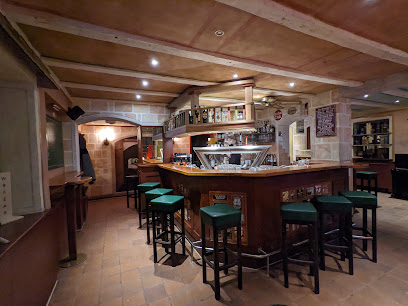
Peaches Cocktailbar
Experience the vibrant nightlife at Peaches Cocktailbar, Garmisch-Partenkirchen's premier spot for exquisite cocktails and great vibes.
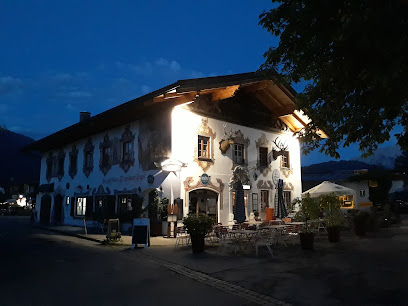
Pub 33
Discover the lively ambiance of Pub 33 in Garmisch-Partenkirchen, where local brews meet Bavarian charm and vibrant nightlife.
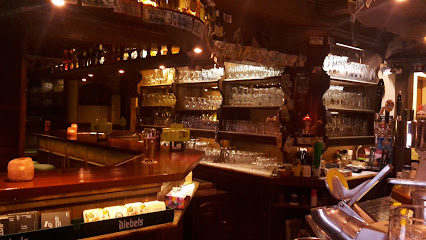
The Local Cure Lounge Bar
Discover the cozy charm of The Local Cure Lounge Bar in Garmisch-Partenkirchen, where delightful drinks meet a warm alpine atmosphere.
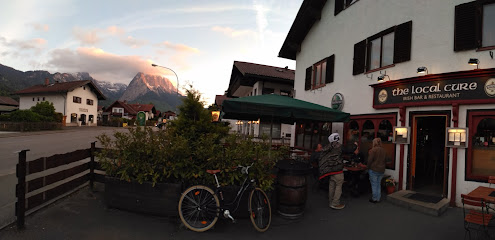
Servus Musicbar
Discover the lively ambiance of Servus Musicbar in Garmisch-Partenkirchen, where great drinks and fantastic music create unforgettable nights.
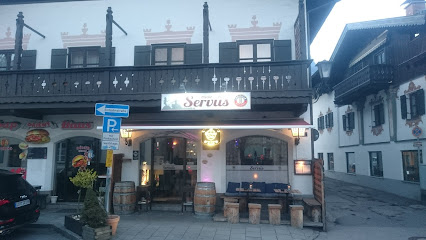
Jan's Kneipe
Discover the heart of Bavarian culture at Jan's Kneipe, a cozy pub and restaurant in Garmisch-Partenkirchen offering traditional cuisine and a vibrant atmosphere.
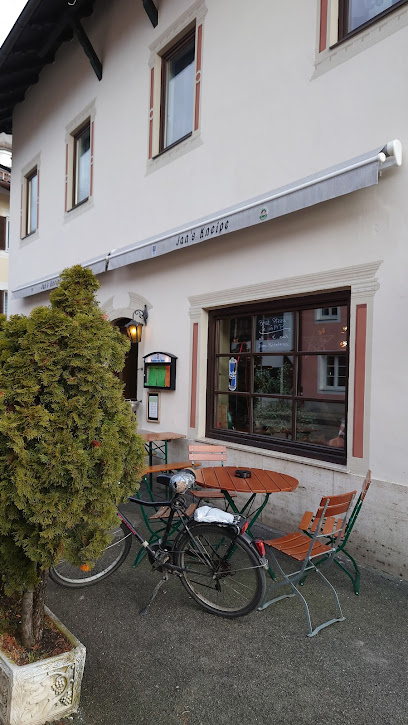
Cuatro Hombres
Discover the charm of Cuatro Hombres, a cozy bar in Garmisch-Partenkirchen, offering a warm ambiance and delightful drinks amidst breathtaking Alpine views.
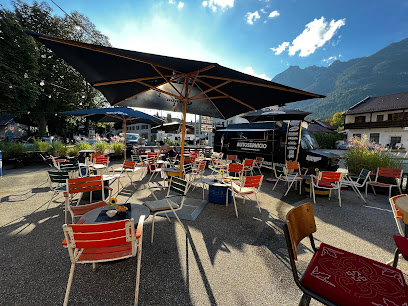
Bieraterie - Die Bar
Discover the finest selection of German beers in a cozy atmosphere at Bieraterie - Die Bar in Garmisch-Partenkirchen.
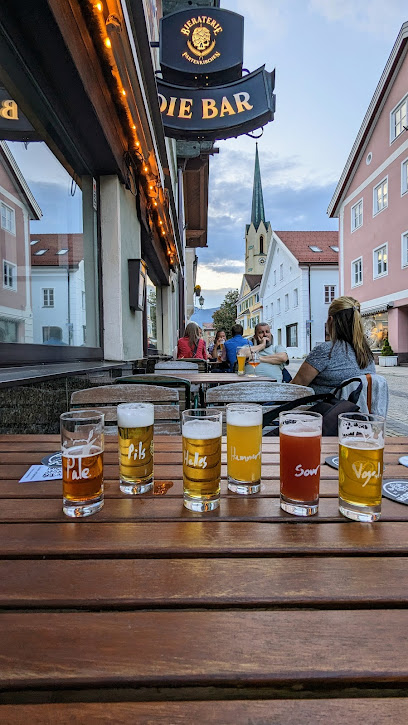
Südtiroler Speckstüberl Mayr Andreas
Experience authentic Bavarian flavors at Südtiroler Speckstüberl Mayr Andreas, a charming bar in Garmisch-Partenkirchen serving traditional South Tyrolean delicacies.
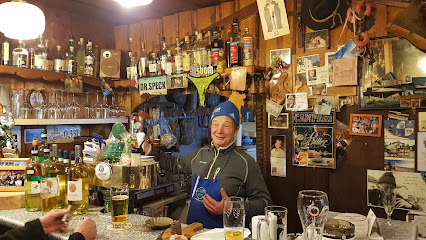
CHB
Discover the charm of CHB in Garmisch-Partenkirchen, a welcoming bar offering a delightful selection of drinks amidst the stunning Bavarian Alps.
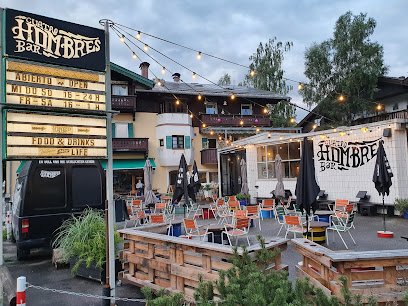
Lungi’s Treff
Discover the cozy ambiance of Lungi’s Treff, a charming bar in Garmisch-Partenkirchen perfect for unwinding with drinks and good company.
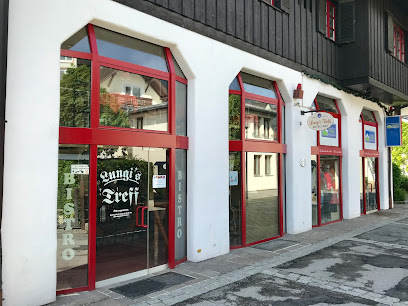
Kandabar
Experience authentic Bavarian cuisine and a warm atmosphere at Kandabar, the perfect gastropub in the heart of Garmisch-Partenkirchen's breathtaking Alps.
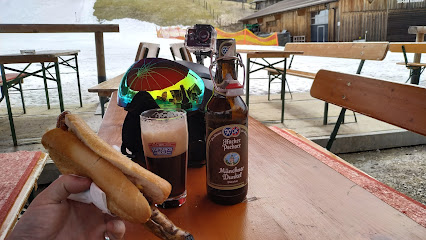
Miris Hütt'n
Discover the charm of Miris Hütt'n, a captivating bar in Garmisch-Partenkirchen, where great drinks and good company await you.
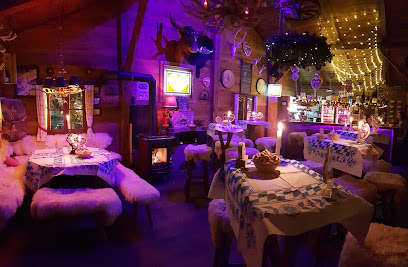
Local Phrases about Bavarian Alps
-
- HelloGrüß Gott
[groos got] - GoodbyePfiat di
[fee-aht dee] - YesJa
[ya] - NoNein
[niyn] - Please/You're welcomeBitte
[bi-te] - Thank youDanke
[dahn-kuh] - Excuse me/SorryEntschuldigung
[ent-shool-dee-goong] - How are you?Wie geht's?
[vee gets] - Fine. And you?Gut. Und dir?
[goot oond deer] - Do you speak English?Sprechen Sie Englisch?
[shpre-khen zee eng-leesh] - I don't understandIch verstehe nicht
[ikh fer-shtay-uh niht]
- HelloGrüß Gott
-
- I'd like to see the menu, pleaseIch hätte gerne die Speisekarte, bitte
[ikh hate ge-rnuh dee shp-eye-zuh-kahr-teh bi-teh] - I don't eat meatIch esse kein Fleisch
[ikh e-suh kine fli-sh] - Cheers!Prost!
[prohst] - I would like to pay, pleaseIch möchte bitte zahlen
[ikh mer-khte bi-teh tsah-len]
- I'd like to see the menu, pleaseIch hätte gerne die Speisekarte, bitte
-
- Help!Hilfe!
[hil-feh] - Go away!Geh weg!
[geh veg] - Call the Police!Rufen Sie die Polizei!
[roo-fen zee dee po-lee-tsi] - Call a doctor!Rufen Sie einen Arzt!
[roo-fen zee iyn-en ahrts] - I'm lostIch habe mich verirrt
[ikh hah-beh mikh fer-eert] - I'm illIch bin krank
[ikh bin krunk]
- Help!Hilfe!
-
- I'd like to buy...Ich möchte ... kaufen
[ikh mer-khte ... kow-fen] - I'm just lookingIch schaue nur
[ikh shou-eh noor] - How much is it?Wie viel kostet es?
[vee feel koh-stet es] - That's too expensiveDas ist zu teuer
[dahs ist tsoo toy-er] - Can you lower the price?Können Sie den Preis senken?
[kuh-nen zee den prise zehn-ken]
- I'd like to buy...Ich möchte ... kaufen
-
- What time is it?Wie spät ist es?
[vee shpet ist es] - It's one o'clockEs ist ein Uhr
[es ist iyn oor] - Half past (10)Halb (zehn)
[halb (tsayn)] - MorningMorgen
[mohr-gen] - AfternoonNachmittag
[nahkh-mit-tahk] - EveningAbend
[ah-bent] - YesterdayGestern
[ge-stern] - TodayHeute
[hoi-teh] - TomorrowMorgen
[mohr-gen] - 1Eins
[iyns] - 2Zwei
[tsvai] - 3Drei
[dry] - 4Vier
[feer] - 5Fünf
[fuhnf] - 6Sechs
[zeks] - 7Sieben
[zee-ben] - 8Acht
[ahkt] - 9Neun
[noyn] - 10Zehn
[tsayn]
- What time is it?Wie spät ist es?
-
- Where's a/the...?Wo ist ein/der...?
[vo ist iyn/dehr] - What's the address?Was ist die Adresse?
[vas ist dee ah-dreh-suh] - Can you show me (on the map)?Können Sie mir das zeigen?
[kuh-nen zee meer dahs tsee-gen] - When's the next (bus)?Wann kommt der nächste (Bus)?
[vahn komt dehr nai-khs-teh (boos)] - A ticket (to ....)Eine Fahrkarte (nach ...)
[iyn-eh fahr-kahr-teh (nakh)]
- Where's a/the...?Wo ist ein/der...?
History of Bavarian Alps
-
Long before the Bavarian Alps became a tourist destination, they were home to ancient Celtic tribes. Evidence of early settlements can be found in various archaeological sites scattered throughout the region. The Romans later expanded their empire into this area, establishing roads and fortifications to secure their control. Notably, the Via Claudia Augusta, a Roman road built in 15 BC, traversed the Alps, facilitating military movements and trade.
-
During the Middle Ages, the Bavarian Alps saw the establishment of several monasteries that played a crucial role in the region's cultural and economic development. The Ettal Abbey, founded in 1330 by Emperor Ludwig the Bavarian, is an iconic example. These religious institutions not only served spiritual needs but also acted as centers of learning and agriculture, influencing the surrounding communities.
-
The Bavarian Alps were also a significant battleground during the power struggles between the Habsburgs and the local Bavarian dukes. The 17th and 18th centuries were marked by conflicts, such as the War of the Spanish Succession and the War of the Austrian Succession, which saw the Bavarian territories frequently changing hands. Despite these turbulent times, Bavaria eventually emerged as an independent kingdom in 1806 under the rule of Maximilian I.
-
King Ludwig II, often referred to as the 'Mad King' or the 'Fairytale King,' left a lasting legacy in the Bavarian Alps with his elaborate castles. Neuschwanstein Castle, arguably the most famous, was inspired by Wagnerian operas and medieval legends. Its dramatic architecture and picturesque setting have made it one of the most visited landmarks in Germany. Ludwig's other projects, such as Linderhof Palace and Herrenchiemsee, further reflect his romantic and extravagant vision.
-
During World War II, the Bavarian Alps gained strategic importance as the site of the so-called 'Alpine Redoubt'—a rumored plan for a fortified Nazi stronghold where the German military could make a last stand. Although the redoubt never materialized as a significant defensive position, the region was home to several important Nazi leaders and facilities. Berchtesgaden, in particular, was the location of Adolf Hitler's mountain retreat, the Berghof, and the nearby Eagle's Nest, a teahouse given to him on his 50th birthday.
-
After the devastation of World War II, the Bavarian Alps underwent significant reconstruction and transformation. The region capitalized on its natural beauty and historical sites to attract tourists from around the world. Ski resorts, hiking trails, and cultural festivals began to flourish, turning the Bavarian Alps into a premier destination for outdoor enthusiasts and history buffs alike. The preservation of traditional Bavarian culture, including music, dance, and cuisine, has further enriched the region's allure.
Bavarian Alps Essentials
-
The Bavarian Alps are accessible via several international airports, the most convenient being Munich International Airport (MUC). From Munich, you can reach the Bavarian Alps by train, car, or bus. The Deutsche Bahn (DB) offers direct train services to key towns such as Garmisch-Partenkirchen and Berchtesgaden. Alternatively, you can rent a car at the airport and drive via the well-maintained Autobahns, or take a long-distance bus service.
-
Once in the Bavarian Alps, transportation options include trains, buses, and rental cars. The regional trains operated by Deutsche Bahn and the Bayerische Regiobahn provide efficient service between towns. Local buses are also available and are a cost-effective option for short distances. Renting a car offers the most flexibility, especially for exploring remote areas. Cycling is another popular option, with many bike-friendly paths available.
-
Germany uses the Euro (EUR) as its official currency. Credit and debit cards are widely accepted in hotels, restaurants, and shops. However, it's advisable to carry some cash, particularly in small villages and rural areas where card payments may not be accepted. ATMs are readily available in towns and cities. Tipping is customary; rounding up the bill or leaving 5-10% in restaurants is common practice.
-
The Bavarian Alps are generally safe for tourists, with a low crime rate. However, standard precautions should still be taken, such as keeping an eye on personal belongings and avoiding poorly lit areas at night. There are no specific high-crime areas targeting tourists, but it is always advisable to stay vigilant in crowded places and tourist hotspots.
-
In case of emergency, dial 112 for immediate assistance, which covers police, fire, and medical emergencies. Hospitals and medical facilities are available in larger towns such as Garmisch-Partenkirchen and Berchtesgaden. Pharmacies (Apotheke) are also widely available for minor health issues. It's recommended to have travel insurance that covers medical emergencies.
-
Fashion: Do dress appropriately for outdoor activities; layers and waterproof clothing are recommended. Avoid overly casual attire in upscale restaurants. Religion: Do respect local customs and traditions, particularly in churches and religious sites. Public Transport: Do be punctual and validate your ticket before boarding. Don't talk loudly or disturb other passengers. Greetings: Do greet people with a handshake. A simple 'Guten Tag' or 'Grüß Gott' is appreciated. Eating & Drinking: Do try local specialties like Weisswurst and pretzels. Don't leave without sampling Bavarian beer, but drink responsibly.
-
To experience the Bavarian Alps like a local, consider staying in a traditional guesthouse (Gasthof) or a family-run hotel. Participate in local festivals such as Oktoberfest in Munich or smaller village celebrations. Take advantage of the extensive network of hiking and cycling trails. Visit local markets to purchase fresh produce and traditional Bavarian goods. Engage with locals, who are often friendly and willing to share insights about their culture and history.
Nearby Cities to Bavarian Alps
-
Things To Do in St. Anton am Arlberg
-
Things To Do in Munich
-
Things To Do in Bregenz
-
Things To Do in Dornbirn
-
Things To Do in Schellenberg
-
Things To Do in Ruggell
-
Things To Do in Kitzbühel
-
Things To Do in Mauren
-
Things To Do in Eschen
-
Things To Do in Gamprin
-
Things To Do in Triesenberg
-
Things To Do in Schaan
-
Things To Do in Vaduz
-
Things To Do in Davos
-
Things To Do in Balzers













